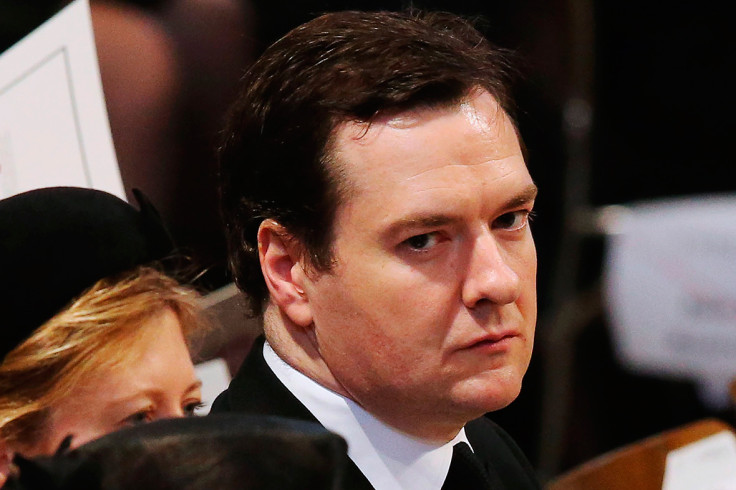EU referendum: Chancellor George Osborne kicks off tour of key EU capitals

UK Chancellor George Osborne is kicking off the first leg of his tour of key European Union capitals to discuss Britain's bid to renegotiate its EU membership ahead of its referendum.
Osborne was off to Paris Sunday (26 July) night for two days of intensive talks with his French counterpart Finance Minister Michel Sapin and Foreign Minister Laurent Fabius, The Guardian reports.
He is picking up where Prime Minister David Cameron left off – following his "whirlwind tour" conducted following the Tory general elections earlier this year, the newspaper says.
Although Osborne is expected to recognise that the renegotiation process is not expected to be easy, he will argue that the impending vote in the UK is an "opportunity" to bring in changes to make Europe more "competitive and dynamic."
Both Osborne and Cameron want to have a deal in place while they still have political momentum and are hoping to have an agreement at the European Council meeting in Brussels in December, the Financial Times reports.
Although they are willing to accept that any talks could possibly push into 2016, they are hoping to put the EU referendum to the British public in 2016 if possible, to ensure that the talks do not become ensnared in the French presidential elections scheduled in May 2017.
The paper says Osborne had dinner on Sunday night with French Economy Minister Emmanuel Macron who last month had ruled out creating an "a la carte" EU to meet with the UK's demands on its membership.
The trip to Paris is seen as a tough diplomatic test for Osborne, given recent statements by the top leaders who do not seem to be in favour of conceding to Britain's demands to renegotiate its EU membership.
Fabius recently said: "Britain joined a football club. They can't say now that they want to play rugby. It's one thing or another."
Osborne's trip seen as a step closer to 10 Downing Street
The FT said Osborne hopes his visit will be a transition for him as a chancellor to a potential successor to 10 Downing Street as Cameron has indicated that he does not wish to seek a third term in office.
It noted that his visit to Paris "extends well beyond what one would normally expect of a finance minister," saying Osborne will appear on French Television.
Osborne is expected to say: "We have been returned to office with a very clear mandate to improve Britain's relationship with the rest of the EU and to reform the EU. The referendum here in Britain is an opportunity to make the case for reform across the EU."
Osborne said: "I want to see a new settlement for Europe: one that makes it a more competitive and dynamic continent to ensure it delivers prosperity and security for all of the people within it, not just for those in Britain."
He is expected to say that although the process of renegotiation is not expected to be easy, "it's a key part of this government's long term economic plan. This government wants the UK to play a leading role within a reformed EU."
What the UK wants
Although the Tory government has not said in detail what it is seeking in its renegotiations with the EU, the BBC says Cameron's key demands are:
- an opt-out on the core EU aim of an "ever closer union.";
- boost the sovereignty of national parliaments to allow them to block proposed EU legislation;
- safeguard the City of London and other financial centres outside of the eurozone;
- curb EU immigration by cutting UK benefits; and
- make the EU more streamlined and competitive.
The UK believes that in order to achieve what it is seeking, the treaties agreed on by all 28 member states will have to be rewritten, the BBC adds.
It however has been reported that the UK may have make do with an "irreversible lock" and "legally binding" guarantees rather than full-on treaty chances before the referendum takes place.
More about UK's EU referendum
© Copyright IBTimes 2025. All rights reserved.






















